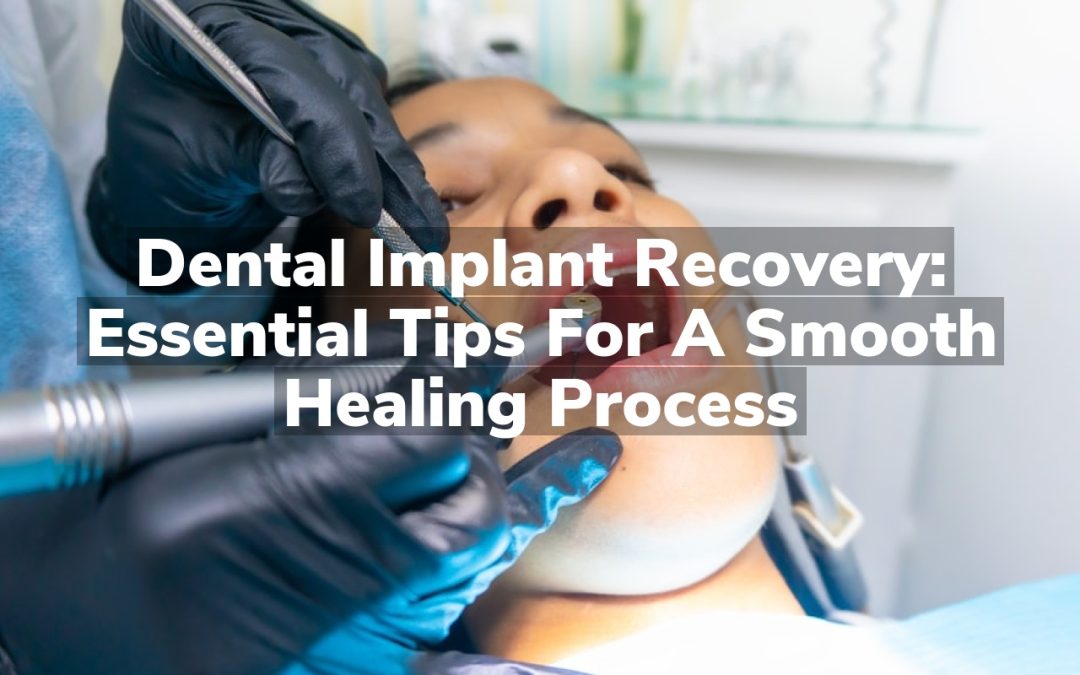Are you wondering what the recovery process looks like after getting dental implants? At Conyers Dental Associates, we’re here to guide you through essential tips that ensure a smooth healing journey, minimizing discomfort and speeding up your path to a restored smile.
Navigating Post-Implant Pain Management
After undergoing a dental implant procedure, it’s normal to experience some level of discomfort as your mouth heals. Effective pain management is crucial to ensure a smooth recovery and minimize any potential complications. Over-the-counter pain relievers, such as ibuprofen or acetaminophen, are often recommended by dental professionals to alleviate mild to moderate pain. It’s important to follow your dentist’s instructions regarding medication, and never exceed the recommended dosage. Additionally, applying an ice pack to the cheek near the affected area can help reduce swelling and provide temporary pain relief.
For those concerned about the financial aspects of dental implant aftercare, including potential repairs, it’s beneficial to have a clear understanding of the costs involved. By visiting Understanding Dental Implant Repair Costs: Factors and Considerations, you can gain insight into what factors may influence the expenses related to maintaining your dental implants. Remember, investing in proper post-operative care not only aids in managing pain but also protects your investment in your dental health by preventing costly repairs down the line.
Dietary Do’s and Don’ts Post-Surgery
After undergoing dental implant surgery, it’s crucial to adhere to specific dietary guidelines to ensure a smooth and efficient healing process. During the initial recovery phase, do prioritize soft foods that require minimal chewing, such as yogurt, applesauce, and smoothies. These gentle options help in avoiding unnecessary pressure on the implant site. Additionally, do stay hydrated with plenty of water and consider incorporating nutrient-rich liquids like bone broth or milk into your diet to support your body’s healing needs. On the other hand, don’t consume hard, crunchy, or sticky foods that can dislodge the implant or irritate the surgical area. Also, avoid hot beverages and spicy foods that can exacerbate swelling and discomfort.
It’s equally important to steer clear of alcohol and tobacco products as they can hinder the healing process by restricting blood flow to the surgical site and potentially leading to complications. By following these dietary do’s and don’ts, you can contribute significantly to a successful recovery and the longevity of your dental implants. For personalized advice and professional care during your dental implant restoration journey, consider reaching out to a Conyers Dentist for Dental Implant Restoration.
Oral Hygiene: Healing Implant Care
Maintaining impeccable oral hygiene is paramount for a successful dental implant recovery. During the healing phase, it’s essential to keep the implant site clean to prevent infections and ensure proper integration with the jawbone. Gently brush around the affected area with a soft-bristled toothbrush and use a non-alcoholic, antimicrobial mouth rinse as recommended by your dentist. Avoiding harsh brushing and staying clear of the surgical site with dental floss until your dentist advises otherwise will also help in safeguarding the delicate tissues. By prioritizing oral hygiene, you’re not only fostering a conducive environment for healing but also investing in the longevity of your dental implant.
Activity Restrictions: Ensuring Implant Success
After undergoing a dental implant procedure, adhering to specific activity restrictions is crucial for ensuring the success of your new implant. During the initial healing period, it’s important to avoid strenuous exercise and heavy lifting, as these can increase blood pressure and lead to bleeding or swelling around the implant site. Additionally, high-impact activities should be put on hold to prevent any jarring or impact that could disrupt the osseointegration process—the critical phase where the implant fuses with the jawbone. By following your dentist’s guidelines on activity limitations, you can help secure a strong foundation for your dental implant, paving the way for a smooth recovery and long-term success.
Recognizing and Addressing Complications Early
Ensuring a successful dental implant recovery involves being vigilant about potential complications. Early recognition and prompt treatment of issues such as infection, swelling, or unusual pain can prevent more serious problems down the line. It’s crucial to follow your dentist’s post-operative care instructions and keep all follow-up appointments. If you notice any signs of complications, such as persistent bleeding, pus, or fever, contact your dental professional immediately. By staying informed about the signs of trouble and communicating effectively with your dental care team, you can address complications early and ensure a smoother healing process for your dental implant.
Conclusion
For personalized guidance on your dental implant recovery, call Conyers Dental Associates at 770-483-6655, and don’t forget to read our reviews on Google Maps.

